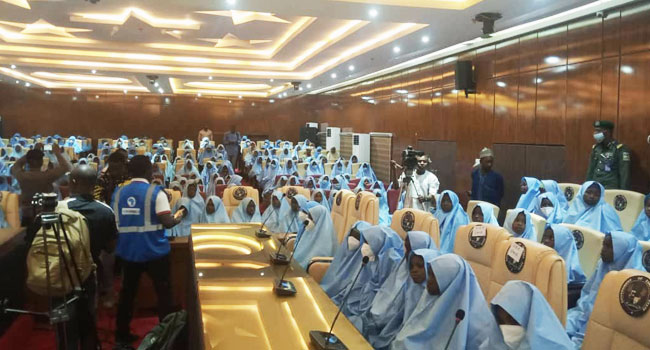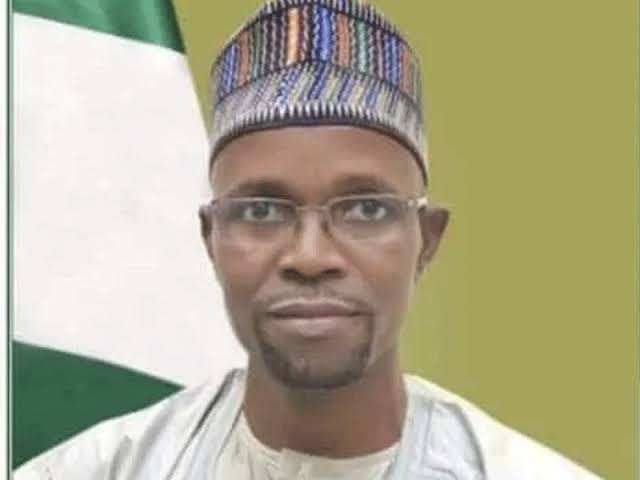…Trains over 67,000 teachers
By Joyce Remi-Babayeju
At least 1.5 million girls were enrolled into schools as the Federal Ministry of Education, UNICEF, and the UK Foreign, Commonwealth and Development office, FCDO implemented the Girls’ Education Programme Phase 3 , GEP 3 in six Northern States comprising Niger, Sokoto, Zamfara and Bauchi between 2012 and 2022.
This was disclosed today at the national closing ceremony of the GEP 3 by partners, who reported that the sum of $109 million invested into the programme recorded positive results with an additional enrollment of 1.5 million girls into school, far exceeding the project’s target.
“The attendance rate of girls in primary schools in the six states improved from 43% to 70%, while gender parity improved from 0.73 to 0.97. “
Furthermore, GEP3 worked to improve the quality of education for all children and helped girls gain better access to education and economic opportunities, breaking the cycle of poverty and disadvantage,
Minister of Education, Mallam Adamu Adamu said, “In our commitment to drastically reduce the number of Out of School Children, Nigeria appreciates the scaling of evidence-based solution in tackling this menace as provided through the GEP3.”
“As we continue on this path, we would leverage on the success of GEP3 to plan better, budget better, and make better decisions in putting more Girl- Child in school.”
“GEP3 has not only been successful in getting more girls into formal and non-formal schools, but it has also improved learning outcomes. GEP3 has raised the profile of educated girls, created new positive social norms in many communities and enabled a transformational shift in mindsets about the importance of girls’ education. “
UNICEF Representative in Nigeria Cristian Munduate noted that it is critical that we advocate scaling of the approach in all states.
“I express the deep appreciation of UNICEF to the UK Government for this long-term commitment and funding for girls’ access to primary school in northern Nigeria.”
Together, there remains much work to be done, to ensure that girls transition to, and complete secondary education. This is important not only for the economic prosperity and wellbeing of the girl and her family, but to stem the high population growth expected in Nigeria. We see FCDO and the government of Nigeria as steadfast partners in this complex endeavor, Munduate said.
In addition to surpassing its target enrollment figures, GEP3’s innovations, policies and best practices are contributing to improvements in Nigeria’s educational sector.
GEP3 has also built the capacity of Head teachers and teachers in the management of schools, as well as delivery of effective learning for girls.
GEP3’s unconditional cash transfer programme supported over 23,500 girls and reduced the level of poverty in the household, enabling families to send girls to school and enhanced the ability of women to generate additional domestic income.
Furthermore, community-based structures like Mothers’ Association, School-Based Management Committees, and the High-level Women Advocates have been established as enduring platforms for community mobilization, mentorship, and policy advocacy on girls’ education.
The programme was also instrumental in strengthening non-formal Qur’anic schools through the integration of foundational literacy and numeracy. To improve learning levels, the programme delivered an early literacy and numeracy intervention, the Reading And Numeracy Activity (RANA).
RANA was designed to improve literacy and numeracy instruction in grades 1-3 in over 3,800 public schools and Integrated Qur’anic schools.
RANA developed Hausa-language teaching and learning materials, built teacher capacity, mobilized communities and engaged local governments to improve early grade reading policies.
Furthermore, the GEP 3 programme trained over 67,000 primary school teachers, including those teaching in Integrated Qur’anic schools to improve their skills and ability to deliver quality education.
“The GEP 3 has been one of the UK’s largest bilateral Girls’ Education programmes globally. We have seen good progress in improving access for girls and moving towards gender parity but with an increasing population, Nigeria’s out of school children figures remain high, for girls and boys. We now need to ensure that we build on the successful interventions of GEP 3, supporting them to be scaled-up and sustained to ensure they are catalysts for change in the wider sector, the Catriona Laing, British High Commissioner to Nigeria disclosed




